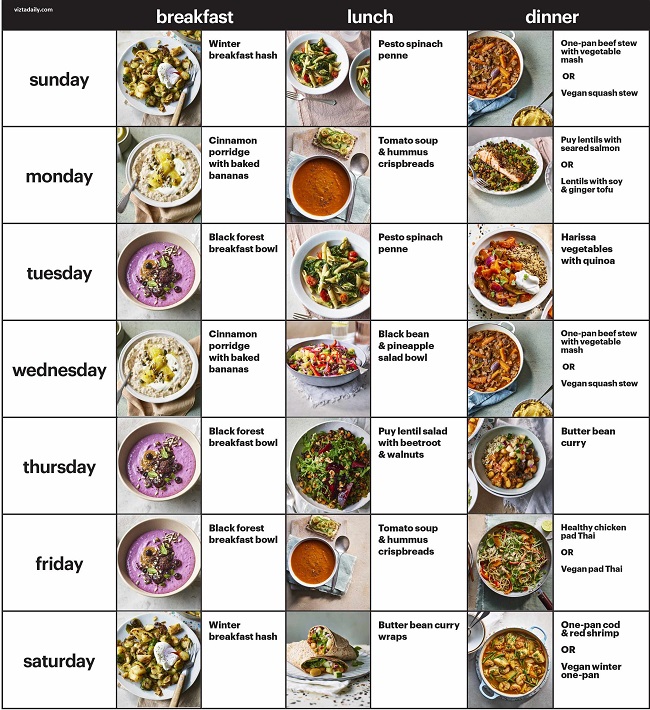When it comes to weight loss, different diet plans can be quite effective when they are tailored to fit the unique preferences of an individual, their specific lifestyles, and any health conditions they may have. By taking into account these personal factors, a diet plan can be created that not only meets nutritional needs but also aligns with the individual’s daily routine and overall well-being.
Here’s a detailed overview of some of the most effective diet plans for weight loss:
1. Mediterranean Diet
Overview
The Mediterranean diet emphasizes whole foods, healthy fats, and lean proteins, inspired by the traditional eating habits of countries bordering the Mediterranean Sea.
Key Components
- Fruits and Vegetables: High intake of fresh produce.
- Whole Grains: Focus on whole grains like brown rice, quinoa, and whole wheat bread.
- Healthy Fats: Olive oil is the primary fat source, along with nuts and seeds.
- Lean Proteins: Includes fish and poultry, with limited red meat.
- Dairy: Moderate consumption of low-fat dairy products.
Benefits
- Promotes heart health.
- Rich in antioxidants and anti-inflammatory compounds.
- Sustainable and enjoyable for long-term adherence.
2. Ketogenic Diet
Overview
The ketogenic diet is a high-fat, low-carbohydrate diet that aims to put the body into a state of ketosis, where it burns fat for fuel instead of carbohydrates.
Key Components
- High Fat: About 70-75% of daily calories from fats (e.g., avocados, nuts, oils).
- Moderate Protein: Approximately 20-25% from protein sources (e.g., meat, fish, eggs).
- Low Carbohydrates: Only about 5-10% from carbs (e.g., leafy greens, non-starchy vegetables).
Benefits
- Rapid weight loss in the initial stages.
- May improve insulin sensitivity and blood sugar levels.
- Can reduce hunger and cravings.
Considerations
- May be difficult to maintain long-term.
- Potential side effects include the “keto flu,” constipation, and nutrient deficiencies.
3. Intermittent Fasting
Overview
Intermittent fasting (IF) focuses on when to eat rather than what to eat. It involves cycling between periods of eating and fasting.
Common Methods

- 16/8 Method: Fast for 16 hours and eat during an 8-hour window.
- 5:2 Diet: Eat normally for five days and restrict calories (500-600) for two non-consecutive days.
- Eat-Stop-Eat: 24-hour fast once or twice a week.
Benefits
- Can lead to weight loss and fat loss.
- May improve metabolic health and insulin sensitivity.
- Simple and flexible, requiring no calorie counting.
Considerations
- May not be suitable for everyone, especially those with certain medical conditions or eating disorders.
4. Plant-Based Diets
Overview
Plant-based diets focus on whole, minimally processed plant foods while minimizing or eliminating animal products.
Key Components
- Fruits and Vegetables: Emphasis on a variety of colorful produce.
- Legumes: Beans, lentils, and peas as primary protein sources.
- Whole Grains: Brown rice, quinoa, oats, and whole wheat.
- Nuts and Seeds: Healthy fats and additional protein sources.
Benefits
- High in fiber, which can aid in satiety and digestion.
- Linked to lower risks of chronic diseases.
- Environmentally sustainable.
Considerations
- Ensure adequate protein intake and consider supplementation for nutrients like B12 if eliminating animal products.
5. Paleo Diet
Overview
The paleo diet encourages eating foods that were available to our ancestors, focusing on whole, unprocessed foods.
Key Components
- Lean Meats: Grass-fed, pasture-raised, or wild-caught sources.
- Fish and Seafood: Rich in omega-3 fatty acids.
- Fruits and Vegetables: Emphasis on fresh produce.
- Nuts and Seeds: Healthy fats and protein sources.
- No Processed Foods: Elimination of grains, legumes, dairy, and refined sugars.
Benefits
- Focus on whole foods can lead to improved health markers.
- May promote weight loss and muscle gain.
Considerations
- Can be restrictive and may lead to nutrient deficiencies if not carefully planned.
6. DASH Diet
Overview
The Dietary Approaches to Stop Hypertension (DASH) diet is designed to combat high blood pressure but is also effective for weight loss.
Key Components
- Fruits and Vegetables: High intake for vitamins and minerals.
- Whole Grains: Emphasis on fiber-rich foods.
- Lean Proteins: Includes poultry, fish, and legumes.
- Low-Fat Dairy: Provides calcium and protein.
- Limited Sodium: Reduces salt intake to improve heart health.
Benefits
- Promotes overall health and weight loss.
- Sustainable and flexible, allowing for a variety of foods.
Considerations
- Focus on portion control and balanced meals for optimal results.
Conclusion
Choosing the right diet plan for weight loss depends on individual preferences, lifestyle, and health considerations. It’s essential to select a plan that is sustainable and fits your personal needs. Consulting a healthcare professional or a registered dietitian can provide tailored guidance and support on your weight loss journey.
Remember, successful weight loss is not just about the diet itself but also about adopting a holistic approach that includes physical activity, mental well-being, and healthy habits.
Please Share!!!



